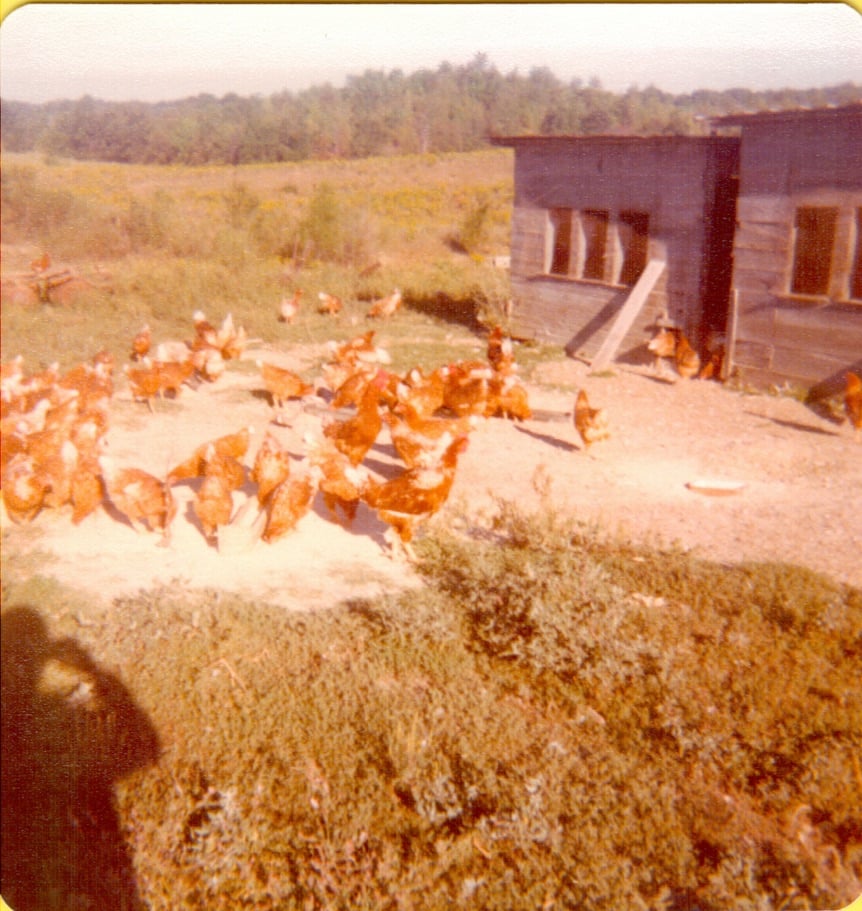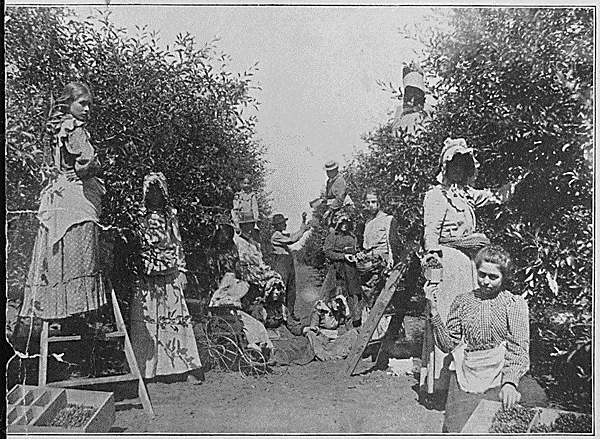Women and Money for the Household
Perhaps this post is more properly put under Women’s Finance.
It isn’t Facebook fashionable to admit to less than sparkling, perfect for a photoshoot backdrop home. I grew up on a subsistence level farm, one of the last ones surviving outside of the corporate model that swept through mid-20th Century America. The sale of crops and livestock made enough to pay the taxes, feed the livestock, plant the next season’s crops, and keep the equipment running with “baling-wire and binder-wine” as the expression went.
Mom’s egg money from the 200 to a 1000 hens she raised and cared for at different times in my childhood was what kept groceries on the table and the little bit of liquidity we occasionally managed to have flowing through the checking account.

I understand egg money, both first hand, and as women’s culture writer. Women ultimately have to deal with their children when bellies are not full, or good clothes wear out before Easter rolls around. The post WWII American economy lulled a lot of people into thinking there was more than there really was. Corporate salaries inflated, and managers and laborers began to live well beyond their means through credit and carbon footprints that we are now paying for. The concept of egg money brought in by a farm wife to help out a bit when needed turned into a full-time job away from home for every adult in a family unit. I personally am not sure that the prices we paid for our shiny surfaces and purported leisure activities were worth it all.
I think egg money existed for many people for millennia. We just called it life and doing what you had to.
With An Elder Woman’s Eyes
In my own family if I examine what the rural women who came before me in the last few generations actually did to keep their families fed and clothed, I know their lives were not easy. As I begin to look at family records with a elder woman’s eyes I see actions behind family stories.
When I was little the stories told about my mom’s mom, Edith, just seemed to signal the spunkiness of a woman who matured during the last of the land rushes and western expansion in the U.S. The story that most exemplifies this is that, “Grandma always carried a gun. You might never know when you would see supper.” There was also the story of oil on the water on their land in Oklahoma, in the 1910s, that prompted Grandma, to load up a flat-bed wagon with the household possessions while Grandpa was at work, and tell him when he got home that she was moving to Iowa where civilized folks and family lived and he could come if he wanted to.
I look at the briefest outline of her early married life and see a young woman who may not have taken any guff, but who was moving around a lot and probably had to shoot a lot of suppers or her kids would not have eaten.
TWO CENSUS PAGES SPEAK VOLUMES

For Edith, my grandmother, there was a lot more moving around with kids in a horse and wagon than I would have been happy with.
- She was born in Indiana in 1883
- She was living in Oklahoma in 1907 with her parents (Newton and Amanda)
- She married Harry in Oklahoma 1909, but her parents moved to Ft Smith Arkansas by 1910
- gave birth to Carl in Oklahoma in 1910
- gave birth to Donovan in Arkansa in 1912
- gave birth to Fay in Iowa in 1914
- her father Newton died in Indiana in 1919
- gave birth to Grant in Indiana 1919
- gave birth to Alice in Indiana 1921
Just this pattern of moves gives me perspective on how women’s lives were shaped by their husbands and fathers.
Newton was always described as a Horse Trader by my mother, though at times he was listed as a farmer. His last son was born in Indiana in 1890 one year after the Oklahoma Land Rush. Newton was at least a year late getting there for the land rush but I think that is why Newton and Amanda took their family and moved there in the 1890s. Within 17 or so years Amanda was back in Indiana with her husband Newton who was ill with diabetes; her daughter Edith was living near her mother in Indiana with her husband who worked as a Tinker (apparently he got in the wagon she had loaded way back in Oklahoma and followed her to Arkansas then Iowa) where she had two more children after trying to build a life in Oklahoma, then in Arkansas, then in Iowa. Both of these women, my grandmother and great grandmother, had apparently had enough of the men in their lives having wanderlust and less than stable professions.
My foremothers had gumption, as they called it back then, and made sure there was egg money.
Nancy, I can’t express how much I love this! I love stories of our forebears–particularly the women who got on with living while the men were doing what they do! I’ve written books on the subject!!!
Well done indeed!
More of us should focus on this!
womenslegacy recently posted…Mama’s Egg Money
I wish more people would write about “regular people” who worked everyday instead of concentrating on those who had money to spare. I kept a small, very small flock of chickens in the 1970s. I can’t imagine keeping 900!
It was a full time job. Back when I was in high school it kept me busy evenings and weekends.
womenslegacy recently posted…Mama’s Egg Money
The women of the past had such different, and difficult, lives compared to ours in many ways. Thank you for giving us a glimpse of your amazing family.
Laurie,
We forget how just a bit over a hundred years ago the west was still “opening up”. Whole other matter if you ask indigenous folks but that is another story.
My background is totally different and yet the same. I grew up in New York City; my grandparents were all immigrants from “the old country”. One of my grandmothers cared for six children and worked in her husband’s small candy store. The other had a husband who was not at home a great deal of the time for some years, and had to carry on alone with her growing family. I salute all the women of these eras and what they did for their children, be it egg money, taking in sewing, or whatever was needed. . They didn’t even have the right to vote when they first got to the United States.
Oh yes, immigrant women, in the past as well as now, of any sort have a difficult path to walk, including fostering awareness of the paths from other places.
Very interesting! I could not help but think of my own mother and grandmother who had similar upbringings.
Indeed, many didn’t have the right to vote, but they kept this country going all the same.
—
Tim Brannan
The Other Side | A to Z of Conspiracy Theories
Every generation of women create our next generation and keep everything running. Side note: Grandma could vote in the territories before she could vote in the states!
really interesting history Nancy. I often have the stereotype that women did not have any agency when dependent on the husband to support her and the children financially. I am seeing in your stories that women were as integral to providing for the family financially as the man… Your stories of your Grandmother demonstrate the independance that came with providing for the family… Love the backbone of your matriarchy !!
Thanks Becca! That is what I am trying to show… and let people know where I get a bit of my attitude! Regular women are super-heroes.
womenslegacy recently posted…Tell-tale Food
I had a great-grandmother who had amazing hair, and according to my grandma she cut it off and sold it for money during the war to keep food on the table. Apparently she left hair along the edges and it was still long and thick enough to tie it up into a bun and cover up the bald part.
The Multicolored Diary
How did I miss your comment until now? It sounds like your great Grandma inspired the Gift of the Magi.
womenslegacy recently posted…Blood Moon Total Lunar Eclipse
My mom still uses the term “egg money” when referring to her own funds she’s earned and squirreled away over the years. I know that most of what I had as a kid — clothing, food on the table, Christmas gifts in lean years, hobby items — were only there because of that money.
Language is powerful and I think that looking at women’s language could tell us a lot about what women really do and how those behaviors are perceived by the powers that be (patriarchal).
Visiting from the A to Z Road Trip. Interesting stories and perspective. My husband grew up on a small family farm and I wish I’d gotten to know his mother better: she left her job and life in the city to marry a farmer and move to nowhere South Dakota! I feel lucky that my husband wanted to leave the farm rather than ask me to move to it. Now I make my “egg money” as an artist and author.
So many women held body and soul of families together with egg money. From wind swept South Dakota to swampy Northeastern Indiana, and far beyond in every direction, women made ends meet one way or another. I marvel at their tenacity.